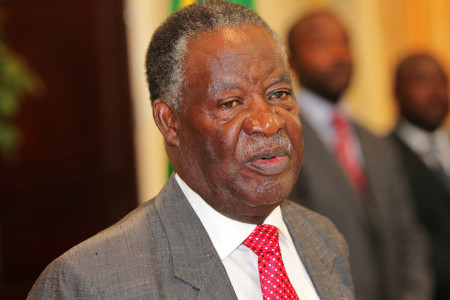Michael Sata, the Zambian president also known as “King Cobra” for his fiery comebacks and larger-than-life personality, has died.

Sata, who was 77, was in London for unspecified medical treatment last week, and died at King Edward VII hospital on Tuesday evening. Officials did not disclose a cause of death. His wife and son were at his bedside.
“It is with a heavy heart that I announce the passing on of our beloved president,” said Cabinet Secretary Roland Msiska, after media reports saying Sata was dead had surfaced.
George Zulu, permanent secretary at the Zambian Ministry of Foreign Affairs, said: “It’s devastating, because I knew he was sick. But I did not know it was going to end this way. (We) lost a man who devoted his whole life to his country.”
Vice President Guy Scott has been appointed acting president, said Cabinet Secretary Roland Msiska. He will serve for 90 days until elections must be held in accordance with Zambia’s constitution. Scott, who is of Scottish descent, will be the first white president in sub-Saharan Africa since apartheid. He is, however, ineligible to be elected president because his parents were not born in Zambia.
Sata, who remained tight-lipped about his health in the face of rampant speculation, had appointed Defence Minister Edgar Lungu as acting president before departing for Britain. But the Zambian constitution also states that when a president dies in office, the vice president automatically becomes acting president.
Sata, who is only the second Zambian leader to die in office after Levy Mwanawasa, who died in a Paris hospital in 2008. He took office in September 2011 after the incumbent president tearfully conceded in a televised speech. This in a continent where leaders usually try to cling onto power even in the most adverse circumstances. Analysts hailed his election as an example of an African nation with a vibrant democracy. But not too long after he took office, speculation swirled over his lack of visibility — which especially stood out for a man who loves the spotlight. Aides said his absence was a result of private international visits, and maintained those trips had nothing to do with medical treatment.
The nation’s bloggers have frequently criticized what they describe as “absence of leadership,” leading Sata to make a surprise appearance in parliament last month and declare that he was not dead.
Sata was born in the Zambian town of Mpika in 1936, and worked as a police officer during the colonial administration. He later trained as a pilot in Russia before returning home and helping develop housing projects in the nation. During Zambia’s struggle for independence from Britain, he jumped into politics, and later founded the Patriotic Front — then an opposition party. His campaign events electrified crowds drawn to his extroverted nature and fight for the average man.
Sata, who narrowly lost to his predecessor Rupiah Banda in 2008, was a major critic of Chinese investment in the nation’s copper industry. He especially targeted foreign companies that mistreated Zambian workers, making him popular among the nation’s miners who accused the Chinese of deplorable work conditions. While in office, Sata warned foreign companies that while their investment is crucial to his nation, they must abide by the labour laws.
The veteran politician has served in other positions, including city council, Member of Parliament and Cabinet minister for local government. Before his election, the copper-rich southern African nation had been ruled by the same party for two decades.
South African President Frederik de Klerk was Africa’s last white President. His party lost to Nelson Mandela’s African National Congress in South Africa’s first multiracial, fully democratic elections in 1994. De Klerk took a deputy position in the new government for two years.








